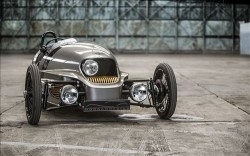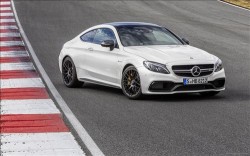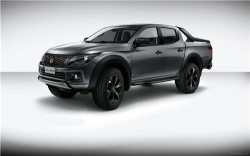Wallpapers
 Mercury is a domestic automaker and a division of Ford Motor Company.
The Mercury brand is marketed as being somewhat more upscale than Ford;
it applies unique styling details and special features to its vehicles
as a way of enhancing their desirability relative to similar Ford
products.
Mercury is a domestic automaker and a division of Ford Motor Company.
The Mercury brand is marketed as being somewhat more upscale than Ford;
it applies unique styling details and special features to its vehicles
as a way of enhancing their desirability relative to similar Ford
products.
In the 1930s, Edsel Ford, Henry Ford's son, saw an opportunity to
create an additional brand within the Ford hierarchy, one that would
slot vehicles between the everyman Ford Deluxes and premium Lincoln
Zephyrs. To achieve this, Edsel felt the vehicles of this new brand
should offer distinctive styling along with innovative features and
better capabilities. He named the new division "Mercury," after the
Roman mythological god. The 1939 Mercury Eight was the division's first
car. It distinguished itself from similar Ford products thanks to a
95-horsepower engine that offered 10 more horses than the Ford V8.
The Eight proved to be a hit, with more than 155,000 sold by the early
1940s. Production stopped during World War II; after the war, the
Mercury brand was realigned more closely with Lincoln. The company grew
from strength to strength in the '50s, establishing itself as a home of
vehicles offering style, performance and cutting-edge technology. A
dash of glamour was added to the automaker's image when James Dean
appeared onscreen in a Mercury car in the film Rebel Without A Cause.
The 1960s saw the introduction of Mercury's Comet and Meteor vehicles.
The Comet featured diminutive dimensions and luxury accoutrements,
while the Meteor was a midsize family car that followed the trend
toward more reasonably sized cars. Racetrack wins boosted awareness of
the Comet and helped the model make a big splash in terms of sales. By
the end of the decade, the iconic Mercury Cougar, a variation of the
Mustang, had been rolled out, taking its place in the pantheon of
legendary early muscle cars.
Hit hard by that decade's oil crisis, consumers during the 1970s were
hungry for smaller vehicles that offered improved fuel efficiency.
Mercury created vehicles like the Capri and the Bobcat to fill this
need. Mercury cars were well received, and its sales grew during a
decade that was filled with turbulence and uncertainty for many
competing marques. The brand took a stab at broadening its consumer
base in the '80s by diversifying and expanding its lineup, which grew
to include vehicles like the subcompact Lynx. Mercury enjoyed success
with the 1986 launch of the Sable, a fraternal twin to the Ford Taurus
whose sleek, aerodynamic lines served to diminish drag and improve fuel
efficiency.
Minivans and SUVs came into their own during the 1990s, and Mercury
made the most of these trends by introducing its Villager minivan and
Mountaineer SUV. The brand's sales hit an all-time high during this
decade that hasn't been matched since.
The past few years have been challenging for the Mercury brand, as
changing consumer tastes and a lack of differentiation between Mercury
and Ford vehicles have hurt sales. Pundits have often proclaimed the
end of Mercury is near, but Ford, as the new millennium takes hold,
seems intent on keeping the brand, and Edsel's original vision, alive.
Today, Mercury's vehicle lineup and consumer base are small, but the
brand remains a respectable pick for buyers seeking luxury vehicles
that are born and bred in the U.S.A.
Views: 21502
[Source: Edmund's ]
Latest Wallpapers
Following is the list of recent pictures updates on our site.
DieselStation Social















